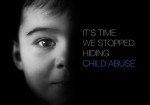Youth who ‘aged out’ of foster care urged to return
New funding will provide $964 or more per month to eligible youth
The search is on for youth who left foster care because they no longer qualified for benefits when they turned 18 – or when they turned 21, if they were under extended foster care. New federal funding combined with temporary changes to eligibility requirements may allow them to continue getting financial assistance during the pandemic.
Federal changes to foster youth eligibility requirements temporarily suspend youth from “aging out” of foster care. The temporary changes also protect youth from losing their foster care eligibility for not meeting education, training or work requirements. The changes are effective through Sept. 30, 2021.
“We are committed to ensuring children in foster care are well cared for in Minnesota, and that older youth have the necessary supports to transition to adulthood,” said Human Services Commissioner Jodi Harpstead. “The federal funding will help Minnesota support these youth, who have been hit especially hard by the pandemic.”
An estimated 770 eligible youth ages 18 to 21 who remain in or re-enter care can get assistance with food and housing costs, college educational expenses, behavioral health needs and driver’s license assistance. The base rate is $964 per month, but the average is approximately $1,100.
The additional funding and the temporary changes to eligibility requirements come from the federal Consolidated Appropriations Act, which allotted $6.8 million from the John H. Chafee Foster Care Independence Program and nearly $1 million in Education and Training Voucher funds to Minnesota foster care programs.
County and tribal social workers will be working to quickly identify eligible youth and encourage them to remain in or return to foster care so that they can access the new benefits.
Youth who left but want to opt back in should contact the county or tribal agency where they last received foster care benefits. If they do not know the county or tribal agency that was responsible for their care, or if they have other questions, they can contact the Adolescent Services Unit at DHS.
– 30 – |









